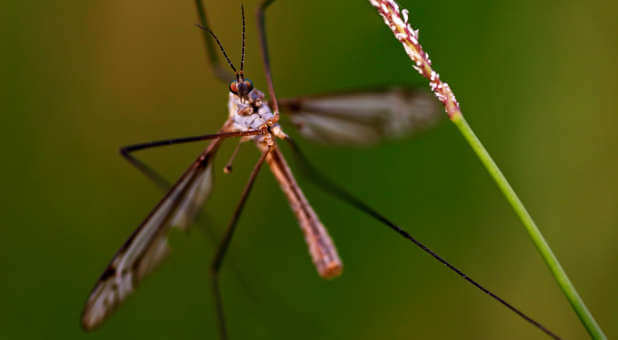Question: What can I do to protect my family from the West Nile virus? I have heard that the fall is when the worst cases appear.
K.T., Memphis, Tennessee
Answer: West Nile virus is, in people, a mild disease caused by a flavivirus—one of a family of viruses transmitted by ticks and mosquitoes. Its symptoms are flulike and, in the majority of cases, typically last only a few days and do not appear to cause any long-term health problems.
The virus is primarily a disease of birds and is transmitted to humans by “overwintering” mosquitoes (species that survive the winter). Until 1999 it had not been documented in the West. It remains common to Africa, eastern Europe, western Asia and the Middle East.
The virus bears a scary reputation, perhaps more so now that it is linked to several hundred deaths in the United States, where it has been moving into new areas. As many as 200,000 Americans may have been exposed to it since 1999, when it killed seven people in New York City. The 2002 U.S. outbreak killed 284 people and infected 4,156 in 40 states before becoming dormant last winter.
Back in 2003, the national Centers for Disease Control and Prevention had documented 3,541 cases of the virus for this year, 66 of them fatal. Thirty-seven states had reported cases, and Colorado had been the hardest hit, with 1,214 cases and 19 deaths.
Tragic though all this is, it is equally true that the disease is not nearly as notorious as its reputation. The truth is, the West Nile virus is not highly infectious. Yes, sporadic outbreaks have occurred–but less than 1 percent of people infected with the disease will develop severe illness. P> The elderly, chronically ill and those with weak immune systems may develop West Nile encephalitis, meningitis or meningoencephalitis (the potentially fatal complications). These cases occur primarily in the late summer or early fall and may be the kind you refer to in your question.
The West Nile virus is, in fact, a disease you can help your family easily avoid. Do everything you can to remove mosquito-breeding areas near your home, and when outside wear protective clothing and insect repellents that contain DEET.
To the person with a healthy immune system, the virus will cause mild transitory symptoms, if any at all. Provide your family with a diet rich in fruits and vegetables supplemented with vitamins and minerals. Couple it with a positive attitude and the joy of the Lord and you’ll boost your immunity significantly!
Question: My child has frequent ear infections and gets antibiotics at least five times a year. Are there natural alternatives for this?
S.G., Brandywine, Pennsylvania
Answer: Antibiotics were one of the wonder drugs of the 20th century, but over-prescribing is decreasing their effectiveness in the 21st century. Consider that:
According to the Pediatric Infectious Disease Journal, Streptococcus pneumoniae, Haemophilus influenzae and Moraxella catarrhalis, the bacteria causing almost all ear infections, are approaching 50 percent resistance in the United States.
The Centers for Disease Control and Prevention reported that between 1979 and 1987 only 0.02 percent of pneumococcus strains were resistant to antibiotics. According to the Journal of the American Medical Association, 6.6 percent had become resistant by 1994.
Researchers writing in the New England Journal of Medicine identified bacteria in patient samples that resist all currently available antibiotic drugs.
A child’s pain is most disturbing and shouldn’t be minimized. If your child has minor symptoms, then under your physician’s care provide painkillers or anti-inflammatory agents. Natural antibiotics include garlic and milk thistle. I myself have five children, and only two of them have ever received antibiotics.
I give them Kyolic Aged Garlic Extract, and for ear inflammation I put a small piece of warm garlic in their outer ear canal to bring down the inflammation and help with the pain. I give them Bee-Alive Royal Jelly for their immune system while keeping them in bed and away from school (which is the therapy that kids really like).
Francisco Contreras, M.D., oversees Oasis of Hope Hospital (www.oasisofhope.com), a cancer-care facility in Mexico widely known for alternative-treatment methods. He is the author of several books on health, including his newest, The Coming Cancer Cure (Siloam, www.charismahouse.com).














































